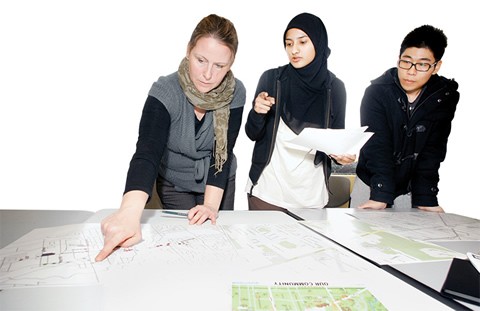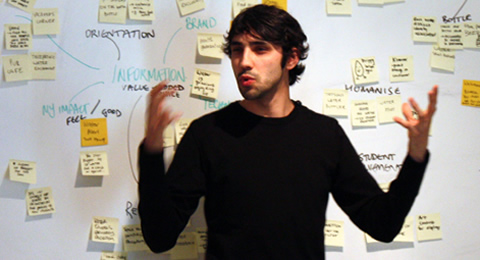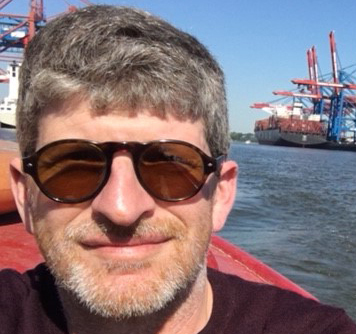Four ideas out of 23 for building an even better Toronto
Share business students’ knowledge and expertise with non-profits.
Healthy cities depend on non-profit organizations to provide support for social and cultural services. These organizations are also sources of employment, economic growth and philanthropic activity. But non-profits, especially smaller ones, can face challenges finding board directors with management expertise. Enter the Rotman School of Management’s OnBoard Fellows program. Launched last year, the initiative pairs 10 second-year MBA students with non-profits – ranging from large hospitals to a small digital literacy group – and puts them to work on projects of strategic significance.
At the Centre for Addiction and Mental Health, for example, the student fellow, working with a board mentor and faculty advisor, helped develop a recruitment strategy designed to diversify the centre’s board of directors.
Some non-profits were initially hesitant to participate in the program but all 10 have indicated an interest in joining again, and five new non-profits will be added this fall. The MBA students who are involved receive an academic credit for the fellowship.
“They can listen, they can learn and offer something tangible to the organization,” says Neel Joshi, Rotman’s director of student life and international experience, who notes that the program was inspired by similar initiatives at American business schools and Toronto’s Maytree Foundation. “They get leadership skills in a real, live setting, but also give back.”
Watch a video about the Rotman School’s OnBoard program from Shanik Tanna on Vimeo:
Make newcomer professionals feel more welcome in their workplace.
Canada admits many immigrants with professional degrees – and about one in four settle in Toronto. Most find work within a couple of years of arriving. But according to surveys conducted by Soo Min Toh, a professor of organizational behaviour and human resources management at U of T Mississauga’s Institute of Management & Innovation, some of these individuals feel undermined by their co-workers because they’re not Canadian – and such experiences seem to negatively affect their careers. “Canadian-born employees are sometimes communicating to the newcomers that they won’t be one of us,” says Toh, noting that respondents reported encountering a “glass wall” in their career progression.
She says organizations that hire newcomer professionals should provide all their employees, not just newcomers, with training in cultural sensitivity and communication techniques. Firms should also look at helping recent immigrants build new professional networks with mentoring programs. Getting senior leaders to support this idea is important, Toh adds. “You have to have people in the organization lead the way. Then you can build a culture that is positive and inclusive, and recognizes the value of difference.”
Enlist students to conduct research for community-building projects.

In 2010, the director of the East Scarborough Storefront, a community hub serving one of Toronto’s low-income neighbourhoods, approached UTSC professor Susannah Bunce with an idea: could her students in the city studies program help conduct research for local groups aiming to develop projects involving housing, green space or youth services?
With funding from the Galin Foundation, UTSC and the Storefront hired a local co-ordinator, launched free courses taught by UTSC faculty members and set up children’s summer sports programs, with coaching support from UTSC students.
Other students now conduct “community-specific research” – meant to help local groups win grants or approval for recreation programs and small business ventures, and to give the students research experience with real-world issues. “We’ve managed to develop a really interesting model of a community-university relationship based on organic growth,” says Bunce. “And it could be replicated elsewhere.”
Gather standardized data from cities around the world, enabling Toronto to compare its performance to its international peers on everything from waste management to crime.
In recent years, U of T’s Global Cities Institute and its sister organization, the World Council on City Data, have worked with municipalities around the world to develop consistent ways for cities to compare themselves against their peers.
The project resulted in the launch of an internationally recognized standard for world cities data, which ensures consistency in the way key municipal metrics are calculated, and allows cities to compare their results. (Prior to the standard, cities often measured the same thing in different ways). The standard measures city services and quality of urban life using more than 100 metrics in 17 thematic areas, from policing to municipal finance and the environment.
Prof. Patricia McCarney, director of the Global Cities Institute and president and CEO of the World Council on City Data, says member cities can use the data to make informed policy choices on issues such as tree-planting or daycare – and can examine how peer cities manage the same activity.
The City of Toronto uses the data to assess its aging municipal infrastructure, such as water and sewer systems, and the risks associated with extreme weather events such as floods. As McCarney notes, “Standardized data allows cities to identify where they can improve, and create solutions based on solid evidence from around the world.”
See how U of T students, faculty and researchers are helping to make Toronto a more:
Recent Posts
U of T’s 197th Birthday Quiz
Test your knowledge of all things U of T in honour of the university’s 197th anniversary on March 15!
Are Cold Plunges Good for You?
Research suggests they are, in three ways
Work Has Changed. So Have the Qualities of Good Leadership
Rapid shifts in everything from technology to employee expectations are pressuring leaders to constantly adapt






